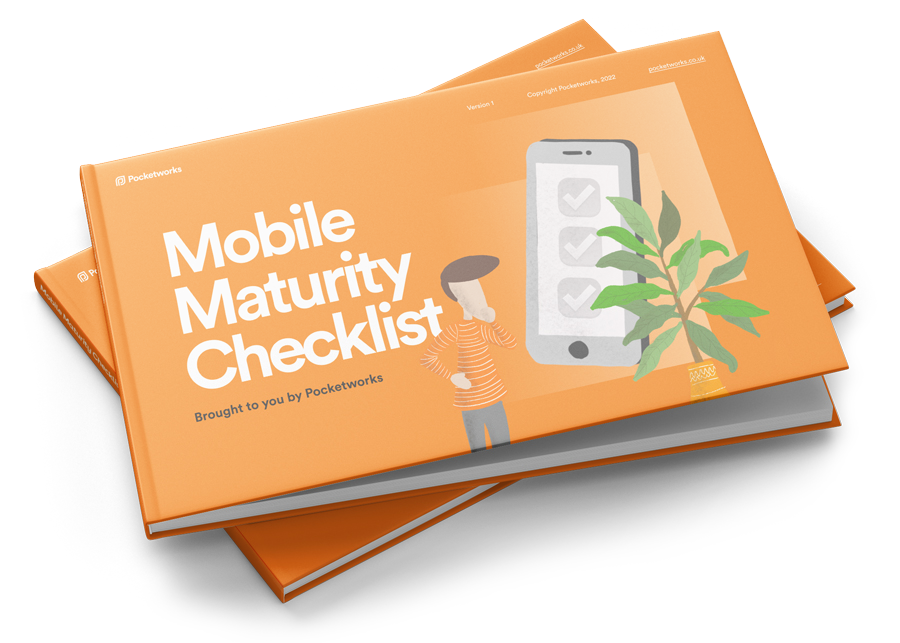I was recently chatting with Adam, our Technology Innovation lead, about something that might sound counterintuitive coming from a mobile app development company. We found ourselves agreeing that apps as we know them might be on their way out.
Not immediately, of course. But the writing is on the wall.
Think about it. When was the last time you downloaded a new app that genuinely changed your daily routine? Most of us have reached app saturation. Our phones are cluttered with icons we rarely tap, while we spend 80% of our time in just three or four apps.
Developing apps is a brutal endeavour; 25% of apps are only used once, and 77% of daily active users churn within three days.
This isn't just idle speculation. Right now, the world is seeing big changes in how we interact with technology, and it could fundamentally alter our relationship with apps and digital experiences.
“Agents are not only going to change how everyone interacts with computers. They’re also going to upend the software industry, bringing about the biggest revolution in computing since we went from typing commands to tapping on icons. Agents won’t simply make recommendations; they’ll help you act on them.”
Bill Gates, 2025
Update 9th June:
OpenAI's COO recently announced that they'd like to build an ambient computing layer that doesn't require users to look at a screen. This coincides with their planned acquisition of Jonny Ive's IO company for $6bn.
“I think we have the opportunity here to kind of completely reimagine what it means to use a computer”
Sam Altman, Founder, OpenAI
The potential of transient apps
What if apps didn't permanently reside on your devices? What if they simply appeared when needed and disappeared when not?
This concept of "transient apps" represents a potential future where digital experiences materialise contextually, serve their purpose, and then politely step aside rather than demanding permanent residence on your home screen.
Apple has already enabled companies to do this through App Clips. Google has Instant Apps. Both allow users to access app functionality without a full download and installation process. But that's just the beginning.
Agentic AI is transforming how we interact with technology
Gartner has named agentic AI as the top technology trend for 2025. Agents represent a significant evolution in how we interact with artificial intelligence, moving beyond simple query-response models to autonomous systems that can perceive, reason, plan, and act.
Imagine having a conversation with your banking AI: "How are my finances looking this month?"
The AI responds: "You're spending more this quarter than usual, particularly on subscriptions."
You ask: "Can you show me the breakdown?"
At this point, rather than opening a separate app, the AI casts a visualisation to whatever screen you're using: Phone, watch, TV, smart glasses or laptop. It would show you exactly what you need to see. You interact with it briefly, then swipe it away when finished.
The visualisation wouldn't be an "app" in the traditional sense. It would be a transient interface, appearing only when needed and disappearing when its job was done.
MCP connects humans to diverse systems
For this future to work, we need seamless integration between AI systems and our data. This is where the Model Context Protocol (MCP) comes in — an open standard not tied to any single AI vendor or data platform.
MCP serves as a standard bridge between diverse systems, where an MCP-compliant data source can provide context to any MCP-enabled AI client, and vice versa. This interoperability creates a rich ecosystem where tools from different providers work together seamlessly.
When your banking AI needs to display a spending visualisation, MCP could be the technology that enables it to access your financial data and generate the appropriate interface on your preferred device.
Getting more technical, there are emerging protocols in this space that facilitate interoperability between app developers, systems, and LLMs. One example is AG-UI, which focuses on human-agent interactions.
The return to web technology
Meanwhile, we're seeing a constant evolution in web technology. Progressive Web Apps (PWAs) combine the best aspects of mobile apps and websites, offering offline capabilities, push notifications, Bluetooth connectivity, and app-like experiences without the installation overhead.
This would be important in a world where we need transient interfaces that come and go, and which can work on any screen (TV, watch, phone, smart glasses, laptop, etc). Web technologies are perfect for this. Plus, there is a huge financial upside: Building App Clips, Apple Watch apps, native apps on multiple platforms is hugely expensive, even with cross-platform tools like [Flutter](/services/flutter-app-development/) and React Native. PWAs are still the most promising for lowering the cost of multiplatform apps, especially across different device types.
Web-based Progressive Web Apps have been slow to reach the potential of their native counterparts; however, they have the potential to offer companies a cost-effective alternative to traditional mobile apps that does not compromise usability or user experience.
This trend suggests a future where the lines between web and app continue to blur. The technology that delivers your experience becomes less important than the experience itself.

